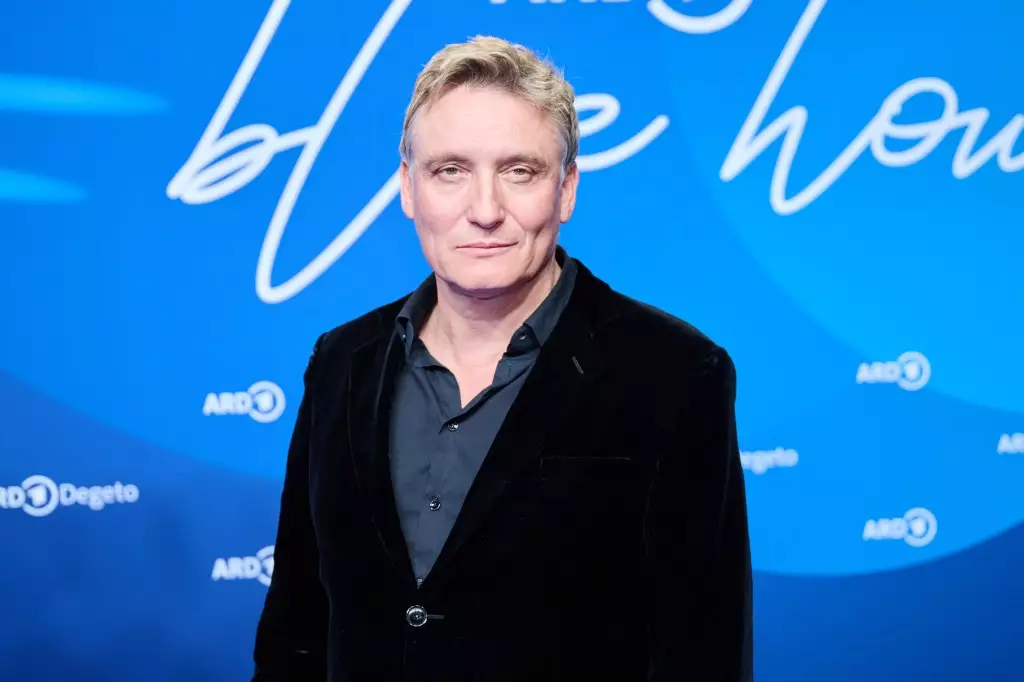Oliver Masucci, renowned for his groundbreaking roles, embarks on a challenging new journey with the series “The German.” Produced by Lionsgate and Yes TV, this Israeli narrative plunges into the harrowing search for Nazi war criminal Josef Mengele. However, what Masucci didn’t anticipate was the backdrop of chaos in which this story would unfold. As filming commenced, the Israel-Hamas conflict erupted, transforming what should have been an exhilarating artistic endeavor into a paradoxically traumatic experience. Masucci described a state of “co-traumatization” as he navigated the turmoil surrounding him, indicating that the heavy burden of history weighed heavily on his shoulders, even as virtual explosions rattled the air.
Spending hours in bomb shelters as rockets rained down, Masucci found himself grappling with an inner conflict akin to that felt by his character, Uri. Uri embodies a tormented soul, eager to shed his past and seek solace in a new life. Masucci articulated a truth that many artists might shy away from: great art often emerges from the deepest of scars. In this case, the challenge of immersing himself into Uri’s psyche echoed the very real turmoil going on outside the filming set. His ability to channel the collective trauma felt by both his character and the people of Israel provides a striking testament to the resilience of the human spirit.
Art as Protest and Understanding
As Masucci recalls the harrowing days spent on set, he highlights a poignant moment when staff advised him to temporarily disconnect from reality by “not opening the news” but instead “opening a bottle of wine.” This statement resonates deeply; it is a coping mechanism for the artists and crew caught in a world of discord. For Masucci, the very act of creating this series became not just his responsibility but a form of silent protest. There is an intense passion underlying his declaration—using art to assert a narrative that combats contemporary misinterpretations of history. As he stated, participation in a project centered around Jewish narratives during such a volatile time serves not only to reshape discussions but also to honor the memories of those affected.
The series is layered with complexity; it depicts not only the historical atrocities committed by Mengele—often referred to as the “Angel of Death”—but interrogates how those past horrors echo into contemporary conflicts. For Masucci, presenting these multifaceted narratives transcends mere entertainment; it is about reclaiming history, acknowledging the past, and paying homage to the countless lives impacted by these dark chapters. The themes of memory and trauma are not confined to bygone dates; they are palpable in modern-day contexts as well.
The Challenge of Language and Identity
One of the most significant hurdles Masucci faced during production was the intricate task of learning Hebrew—a language he had never spoken before. This technical challenge turned into an artistic endeavor, serving as a metaphor for his character’s own journey towards understanding and acceptance. Masucci reflects on the layers of translation required: transforming Hebrew phonetics into English, then into German, illustrating not just the struggles of language but the intricate dance of cultural identities interwoven through history.
This linguistic transformation mirrors the complexities of Masucci’s own identity as a German actor confronting the legacy of his nation. With previous roles portraying Nazis, he asserts that he has indeed treaded carefully in this realm. However, “The German” represents a shift; not merely a performance but also a candid exploration of guilt, responsibility, and the human capacity for reinvention. When coupled with the weight of memorialized trauma, Masucci’s journey becomes emblematic—not just of a German grappling with a sordid history, but of humanity striving for reconciliation against a backdrop of unrest.
The Impact of “Dark” and International Storytelling
Masucci credits the international acclaim that followed his pivotal role in Netflix’s “Dark” for reshaping his career. This pivotal series catalyzed an industry-wide revolution where non-English-language narratives rose to face global audiences. Reflecting on his experiences abroad filming in Iceland, it becomes clear that such groundbreaking projects have not only broadened the scope of storytelling but have allowed actors like Masucci to transcend borders. “People are no longer so dependent on seeing things in their own language,” he notes. This profound shift in consumption speaks volumes about our mutual human experience and the desire for stories that resonate universally across cultures.
Through roles steeped in complexity, Masucci champions narratives that delve into struggles, pain, and the human will to endure, forever shifting the lens through which we view stories. The synergy of his performance in “The German” and the layered themes of the series undoubtedly transform both him and his audience, revealing the powerful intersection between art and reality.

